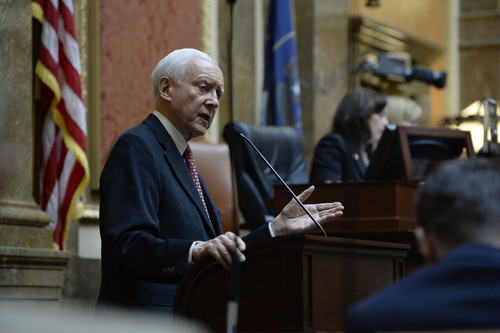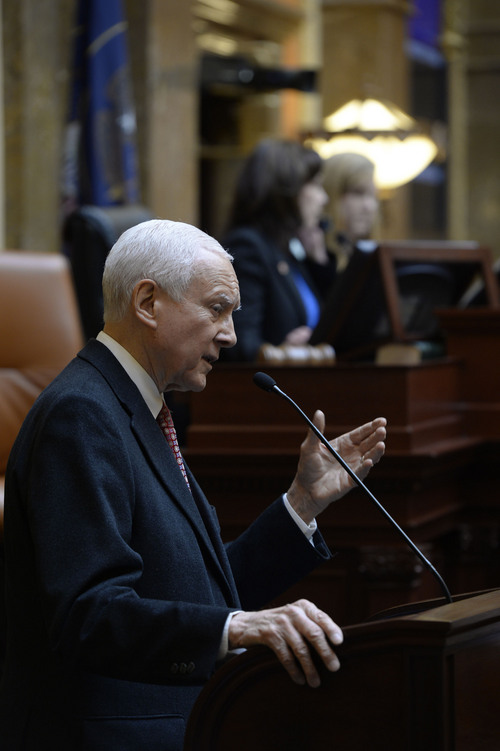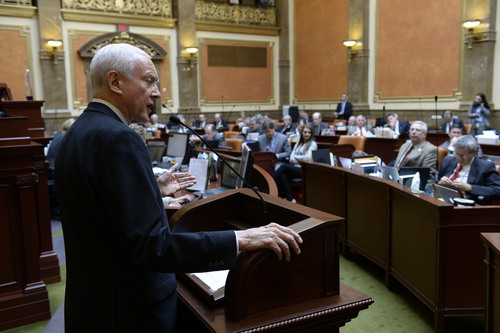This is an archived article that was published on sltrib.com in 2014, and information in the article may be outdated. It is provided only for personal research purposes and may not be reprinted.
U.S. Sen. Orrin Hatch told the Utah Legislature on Friday that its drive to gain control over public federal lands in the state isn't likely to succeed anytime soon — but the effort could still result in better treatment for Utahns.
"We don't have the votes right now, nor do we have support of the [Obama] administration" for the land-title transfer," Hatch said in an annual appearance before the House. He added to the Senate, "I'm not sure how easy it would be with any administration."
But he said he supports the attempt, adding that if the state keeps pressure on the federal government, it will likely get "better treatment" than it does now.
"We don't even want all of our lands back in the sense of national parks, national monuments. We're willing to concede that. But we do want to develop our resources," Hatch said. "That would make Utah one of the richest states in the Union."
Two years ago, the Legislature enacted HB148 demanding control of most federal lands within the state — which it says was promised at statehood — but exempted all national parks and monuments except for Grand Staircase National Monument. Legislators expect the issue to land eventually in the courts.
Rep. Ken Ivory, R-West Jordan and the sponsor of HB148, told Hatch that current federal payments-in-lieu of taxes (PILT) from the federal government amount to "pennies in lieu of trillions," and are often held hostage in Congress to seek votes from Westerners. He has said the land transfer could give the state trillions in oil and mineral royalties, sales and taxes.
Hatch said he wished he could have secured more than a year's worth of PILT payments in the recent passage of the farm bill, but at the end of the process he was lucky to get that.
Hatch also said the U.S. must do something to address immigration reform.
"We've got de facto amnesty now. Everybody knows we're not going to push 13 million people out of the country, and we need to do a very good immigration bill," he said.
He lamented that too many foreigners educated in America are not allowed to stay, and then return home and compete against the United States. "We educate engineers in this country, scientists … and then we just push them out."







